
Baltic Human Rights Advocates Speak Out about Harassment at the UN Security Council
/ Главная / Russkiy Mir Foundation / Publications / Baltic Human Rights Advocates Speak Out about Harassment at the UN Security CouncilBaltic Human Rights Advocates Speak Out about Harassment at the UN Security Council

The UN Security Council held an online meeting of experts on the Situation with National Minorities and the Glorification of Nazism in the Baltic and Ukraine. The UN Special Rapporteur on Minority Issues Fernand de Varennes said that the rights of Russian speakers in the Baltic States and Ukraine had been violated. What else did they talk about at the meeting?
Perhaps, it was the first time in the past thirty years, that such an authoritative and influential platform responsible for maintaining international peace as the UN Security Council gave the floor not merely to experts on discrimination against ethnic minorities, but also to activists of human rights organizations, as well as witnesses and victims of political repression in the Baltic states and Ukraine so that they could report on their concerns.
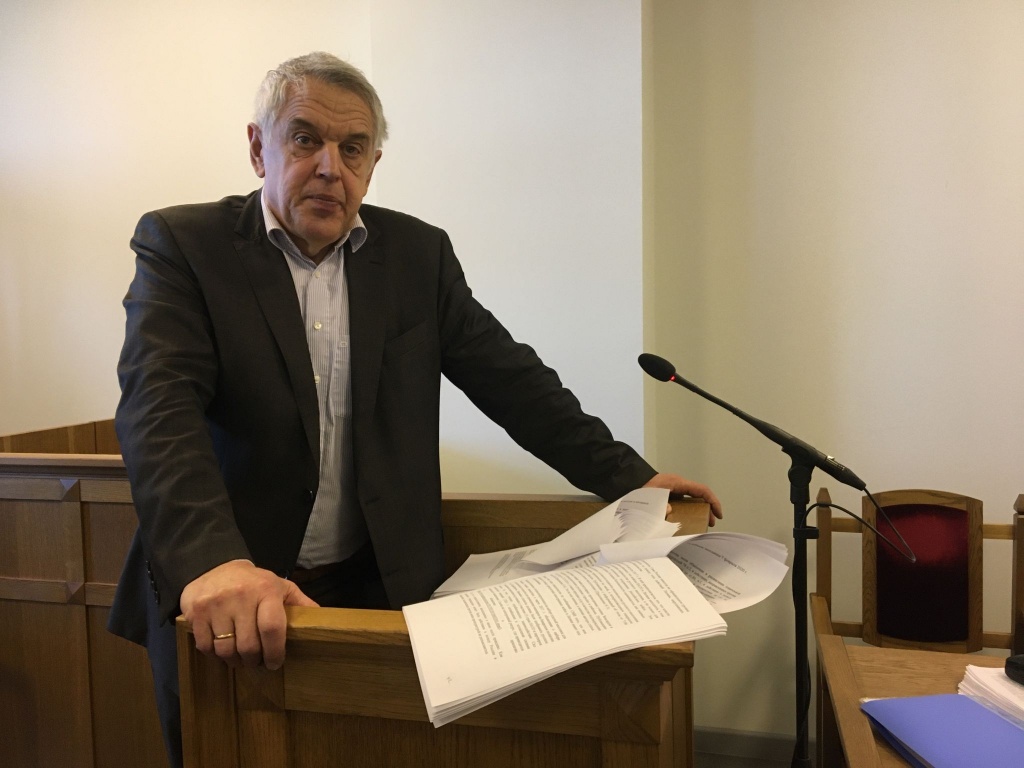
Aleksandr Gaponenko
Aleksandr Gaponenko, Doctor of Economics from Latvia, one of the participants in the meeting, organized by the Russian mission to the UN, told the Russkiy Mir Portal that about 100 people from different countries, including all heads of delegations to the Security Council, had participated in the online event.
“The Russian side invited nine human rights advocates from the Baltic States to speak at the meeting as experts,” said Aleksandr Gaponenko. “We called each other in advance and decided which topics would be addressed. Thus, Alexey Semenov, head of the independent Estonian Center for Human Rights, devoted his introduction to the problems of local permanent alien residents - there are about 100,000 of them in the country. Alisa Blintsova, leader of the NGO "Russian School of Estonia," spoke about discrimination in the education of ethnic minorities. Rishardas Burda, a lawyer from Lithuania, spoke on Lithuania's political prisoners. One of them is Yuri Mel, a retired Russian officer. He was sentenced on a ridiculous charge to 10 years in prison. and has already served 7 years behind bars. Konstantin Nikulin, a former OMON officer, serving a life sentence in Lithuania since 2007, and Gennady Ivanov, a Russian national who was sentenced to 4 years in prison by a Lithuanian court on the politically motivated January 13 Case back in 2019, are some more examples…”
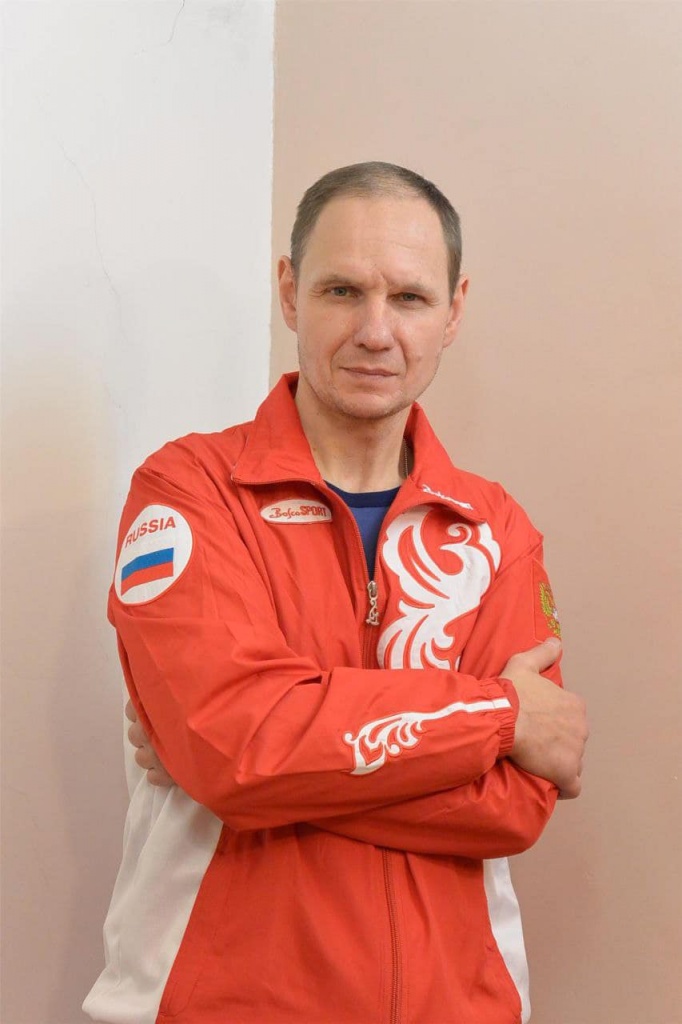
Konstantin Nikulin
Viktor Gushchin, head of the Coordinating Council of Latvian NGOs and historian, was the expert from Latvia. He devoted his report to the Latvian legal documents, which, in fact, legalized the main discriminatory restrictions against national minorities in the country and, to some extent, opened the way for the glorification of Nazism. First of all, it is the preamble to the Latvian Constitution that states, "Latvia for Latvians," and the declaration on the Latvian SS Legion, which describes them as pro-independence activists.
Another expert from Latvia, Natalia Jolkina, co-chair of the Latvian Human Rights Committee, told UN Security Council members about mass statelessness, language discrimination, and the ban on native-language education for children of the Russian national minority.
Aleksandr Gaponenko, who had recently served four months in prison due to trumped-up charges on incitement of ethnic hatred, devoted his speech to the glorification of Nazism in Latvia and the persecution of dissidents in the Baltic states.
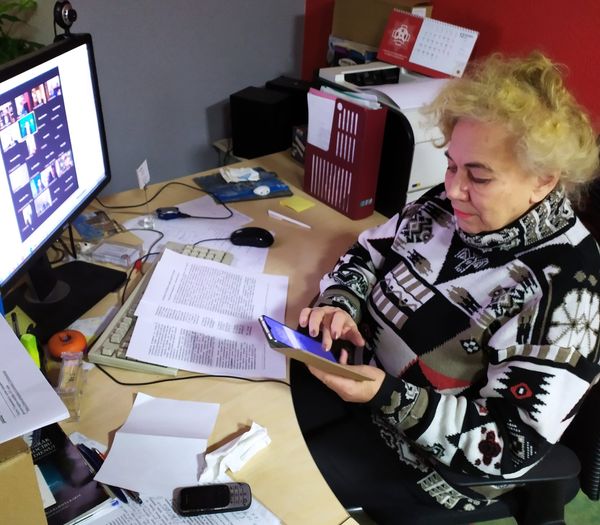
Natalia Jolkina spoke about mass statelessness in Latvia and the elimination of Russian education
In 2015, a criminal case was filed against the Latvian scholar, pacifist, and publicist, who actively criticized the glorification of Nazism in the media. As a result, Aleksandr Gaponenko was convicted by a Latvian court for inciting ethnic hatred, including condemning the traditional marches of SS legionnaires and their followers in Riga and was sentenced to 10 months of suspended imprisonment.
“The lawyers argued that the judgment violated the verdict of the International Military Tribunal at Nuremberg. But their arguments were rejected by the Latvian court of the highest instance. The resolutions of the UN and European Parliament, the international conventions condemning racism were also not taken into account by the court as they had no force in the territory of Latvia. We can say that this created a judicial precedent, and now any anti-fascist statement in Latvia will be punished by imprisonment," said the human rights advocate.
Being given a unique opportunity to address the heads of UN Security Council delegations in person, the Latvian oppositionist devoted the eight minutes of his speech not only to his struggle but also to the fate of other victims of political repression in the Baltic States.
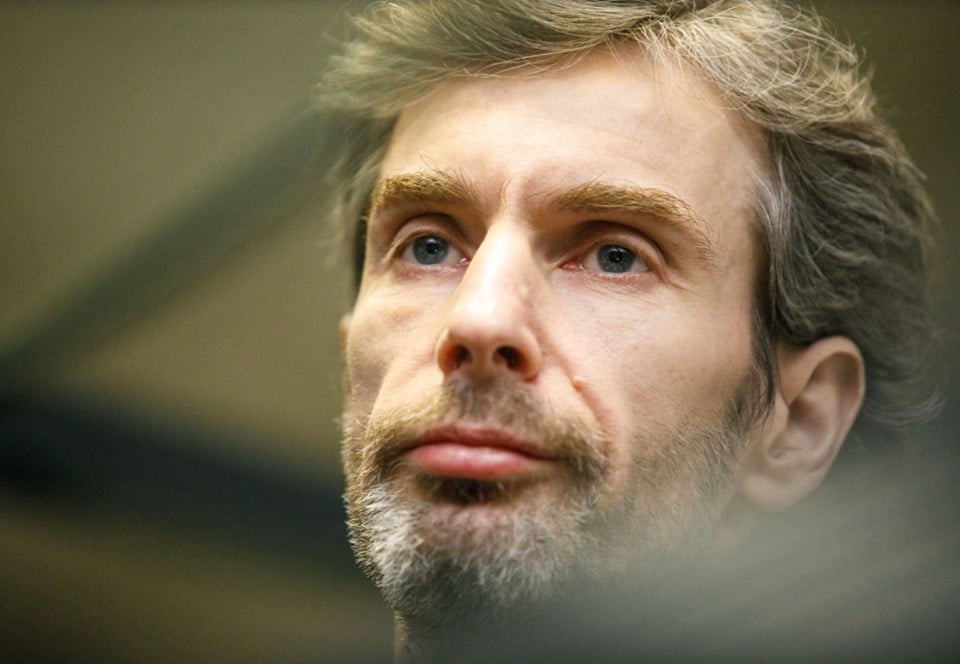
Algirdas Paleckis
The prominent Lithuanian politician Algirdas Paleckis was recently sentenced to six years in prison for dissent. Authorities have accused him of espionage, although the politician and journalist's crime was about collecting information from public sources to write his book about the January 13, 1991 events in Vilnius. Alexey Greychus, the grandson of Righteous Among the Nations, civil activist and book publisher, participant of public campaigns aimed to preserve the memory of Nazi prisoners and fighters against fascism, was sentenced to four years of real imprisonment in Klaipeda. Both "espionage" trials have been held behind closed doors in violation of all existing international standards.
For almost 10 months, Sergei Seredenko, a well-known lawyer, who is called the "Russian ombudsman" in the country, has been detained in Estonia under conditions of utmost secrecy. Unable to find a job in his field due to his political activities, Sergei Seredenko worked as a janitor in a school gymnasium for a year and a half before his arrest. Nevertheless, the security services insisted on his imprisonment on charges of spying against Estonia.
The process is classified, and the accused human rights activist is prohibited from correspondence, phone calls, and even visits. He actually spent 10 months in complete isolation, which is comparable to physical and psychological torture. The "Russian ombudsman" in Estonia faces up to six years in prison.
In Latvia, besides Aleksandr Gaponenko, about 20 other people were subjected to political repressions. Last fall, a Latvian court of first instance convicted leading Russian opposition journalist Yuri Alekseev, known for his satire and criticism of the national authorities in Latvia, for imaginary criminal offenses based on fabricated evidence. He was sentenced to 1 year and 2 months of real imprisonment and has now filed an appeal. The trial against Russian philologist and local historian Alexander Filey, who dared to give his own interpretation of Latvian history on his Facebook page, has been going on in Riga for almost three years.
Alexander Filey
And finally, the criminal case against journalists collaborating with the Russian Internet portals Sputnik and Baltnews. It was initiated in Latvia in December 2020. According to the secret services and the prosecutor's office, by publishing their articles in the media owned by the state news agency Rossiya Segodnya, Latvian freelance writers violated European sanctions that were imposed personally on the news agency's director-general, Dmitry Kiselyov.
To date, 14 defendants have already been indicted, including Alla Berezovskaya. In addition to violating sanctions, they are also accused of contributing to "creating a positive image of Russia in the European Union". Latvia's criminal law provides for up to four years in prison for violating international sanctions…
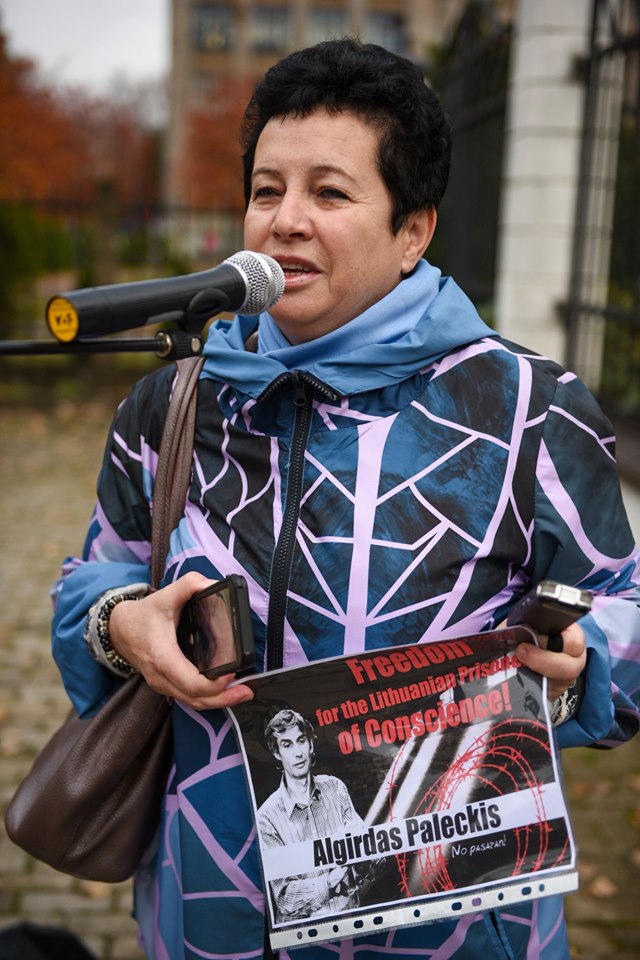
Alla Berezovskaya
At the invitation of Russian diplomats, the UN Special Rapporteur on National Minorities, Professor Fernand de Varennes from Canada, also participated in the UN Security Council event. The Canadian expert has been closely following the situation with the rights of national minorities in the Baltic States for several years. He has participated several times in thematic conferences of human rights advocates in Riga and he understands the problems of these countries very well. This time he mentioned Latvia in the context of mass statelessness and overtly discriminatory school reforms that affected not only public but even private educational institutions.
According to de Varennes, Russian is one of the most discriminated languages in Eastern Europe, and Russian speakers as a group are disadvantaged the most.
De Varennes noted that in the Baltics, discrimination was most pronounced in education where Russian was literally forced out, and native Russian speakers simply did not have access to education in their native language.
After the devastatingly critical reports of human rights advocates from Lithuania, Estonia, and Latvia, as well as victims of political repressions, members of the Security Council from NATO countries - Great Britain, the USA, Norway, France, Ireland - took the floor. The eyewitnesses from the Baltics hoped that at least some of them would perceive and react adequately to the information that had been voiced about mass violations of the rights of national minorities in the Baltic States and Ukraine. But their hopes were in vain.
“No, there was no miracle, of course. The rapporteurs simply paid no attention to our testimonies. They targeted their anger mainly at Russia and Belarus. Unfortunately, we had no opportunity to ask the speakers questions. However, I approached the lady that spoke on behalf of Estonia in writing and asked her how they were going to punish Sergei Seredenko for his anti-Nazi statements. She reacted rather nervously, but in the end, she did not say anything clear about Seredenko. I asked the American speaker how the US felt about the facts of persecution of anti-fascists in our countries. He took it calmly - he kept silent and refocused to "aggressive" Russia," said Aleksandr Gaponenko.
But just two hours after the meeting, which suggests a kind that it had been prepared in advance, the Resolution of the UN Security Council participants from 36 countries was published. It was tweeted by the Permanent Mission of Estonia to the UN: "We regret today's event aimed at making cynical and unfounded accusations against member states, distorting history, spreading false narratives and misinformation about neighboring states.".
“It's outrageous and sad," Alisa Blintsova, an advocate of Russian schools in Estonia, reacted to the report. “None of the 36 countries participating in the conference were interested in the problems of ethnic minorities in Estonia or in the arrest of human rights activist Sergei Seredenko. I can even say more - they were not interested in what we were saying at all. This is how influential our Security Council is.”
Nevertheless, the ice has broken. According to Latvian human rights activists Vladimir Buzaev and Aleksandr Gaponenko, the first experience when Russia discussed problems of Russian national minorities at such a high level can be considered a certain breakthrough of the blockade. A special memorandum, which is being prepared by the Russian delegation, is planned to be released based on the results of the event. It is also possible that all expert reports will be published in English for further circulation among representatives of UN member states.
New publications

 Mikhail Kalatozov, a director who transformed the world of cinematography in many ways, was born 120 years ago. He was a Soviet film official and a propagandist. Above all, he was capable of producing movies that struck viewers with their power and poetic language.
Mikhail Kalatozov, a director who transformed the world of cinematography in many ways, was born 120 years ago. He was a Soviet film official and a propagandist. Above all, he was capable of producing movies that struck viewers with their power and poetic language.  Ukrainian authorities have launched a persecution campaign against the canonical Ukrainian Orthodox Church (UOC), the biggest one in the country's modern history. Over the past year, state sanctions were imposed on clergy representatives, searches were conducted in churches, clergymen were arrested, criminal cases were initiated, the activity of the UOC was banned in various regions of the country, and monasteries and churches were seized.
Ukrainian authorities have launched a persecution campaign against the canonical Ukrainian Orthodox Church (UOC), the biggest one in the country's modern history. Over the past year, state sanctions were imposed on clergy representatives, searches were conducted in churches, clergymen were arrested, criminal cases were initiated, the activity of the UOC was banned in various regions of the country, and monasteries and churches were seized.  When Nektary Kotlyaroff, a fourth-generation Russian Australian and founder of the Russian Orthodox Choir in Sydney, first visited Russia, the first person he spoke to was a cab driver at the airport. Having heard that Nektariy's ancestors left Russia more than 100 years ago, the driver was astonished, "How come you haven't forgotten the Russian language?" Nektary Kotlyaroff repeated his answer in an interview with the Russkiy Mir. His affinity to the Orthodox Church (many of his ancestors and relatives were priests) and the traditions of a large Russian family brought from Russia helped him to preserve the Russian language.
When Nektary Kotlyaroff, a fourth-generation Russian Australian and founder of the Russian Orthodox Choir in Sydney, first visited Russia, the first person he spoke to was a cab driver at the airport. Having heard that Nektariy's ancestors left Russia more than 100 years ago, the driver was astonished, "How come you haven't forgotten the Russian language?" Nektary Kotlyaroff repeated his answer in an interview with the Russkiy Mir. His affinity to the Orthodox Church (many of his ancestors and relatives were priests) and the traditions of a large Russian family brought from Russia helped him to preserve the Russian language.

 The leaders of the Friends of the Great Russia cultural association (Amici Della Grande Russia) in Italy believe that the Western policy of abolishing Russian culture in Europe has finally failed. Furthermore, it was doomed to failure from the beginning.
The leaders of the Friends of the Great Russia cultural association (Amici Della Grande Russia) in Italy believe that the Western policy of abolishing Russian culture in Europe has finally failed. Furthermore, it was doomed to failure from the beginning.  Name of Vladimir Nemirovich-Danchenko is inscribed in the history of Russian theater along with Konstantin Stanislavski, the other founding father of the Moscow Art Theater. Nevertheless, Mr. Nemirovich-Danchenko was a renowned writer, playwright, and theater teacher even before their famous meeting in the Slavic Bazaar restaurant. Furthermore, it was Mr. Nemirovich-Danchenko who came up with the idea of establishing a new "people's" theater believing that the theater could become a "department of public education."
Name of Vladimir Nemirovich-Danchenko is inscribed in the history of Russian theater along with Konstantin Stanislavski, the other founding father of the Moscow Art Theater. Nevertheless, Mr. Nemirovich-Danchenko was a renowned writer, playwright, and theater teacher even before their famous meeting in the Slavic Bazaar restaurant. Furthermore, it was Mr. Nemirovich-Danchenko who came up with the idea of establishing a new "people's" theater believing that the theater could become a "department of public education."  "Russia is a thing of which the intellect cannot conceive..." by Fyodor Tyutchev are famous among Russians at least. December marks the 220th anniversary of the poet's birth. Yet, he never considered poetry to be his life's mission and was preoccupied with matters of a global scale. Mr.Tyutchev fought his war focusing on relations between Russia and the West, the origins of mutual misunderstanding, and the origins of Russophobia. When you read his works today, it feels as though he saw things coming in a crystal ball...
"Russia is a thing of which the intellect cannot conceive..." by Fyodor Tyutchev are famous among Russians at least. December marks the 220th anniversary of the poet's birth. Yet, he never considered poetry to be his life's mission and was preoccupied with matters of a global scale. Mr.Tyutchev fought his war focusing on relations between Russia and the West, the origins of mutual misunderstanding, and the origins of Russophobia. When you read his works today, it feels as though he saw things coming in a crystal ball...